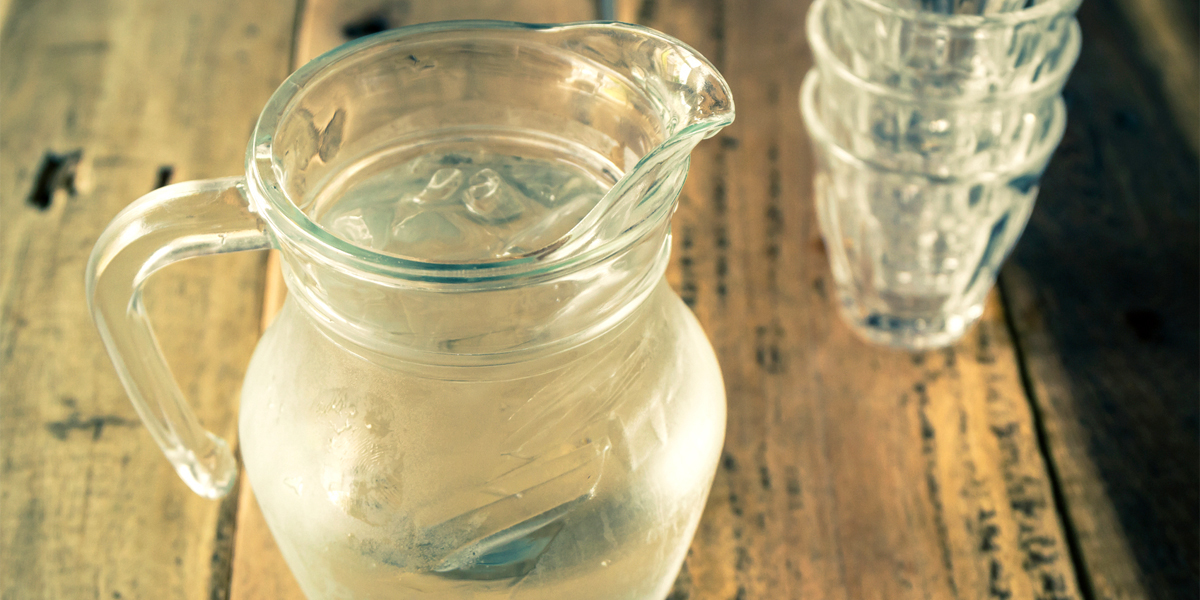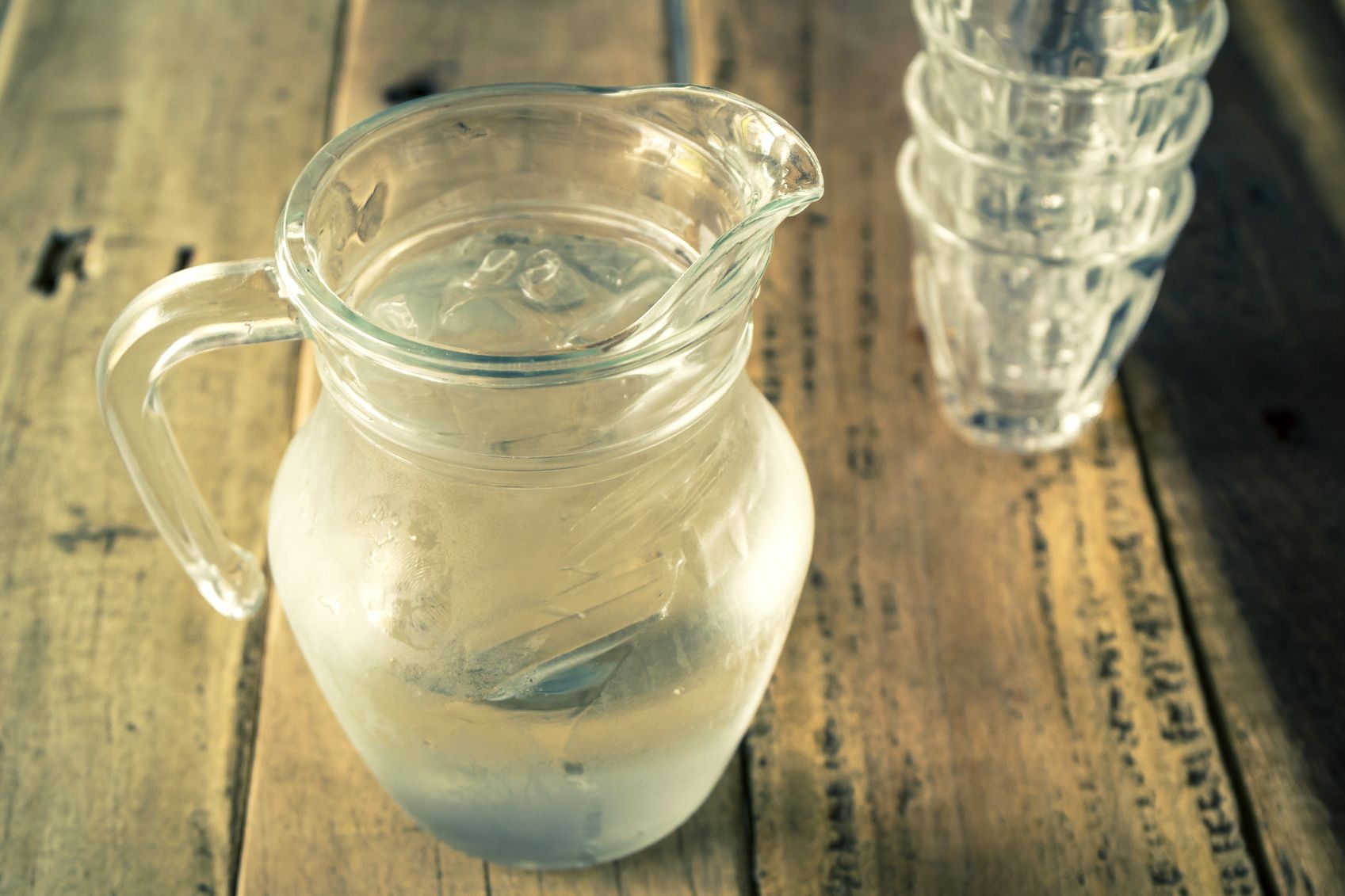

By Kerri-Ann Jennings
Water is essential for life. Beyond the basic choices of tap or bottled water, there’s a new kind of designer water hitting the shelves—alkaline water.
Marketed as a less-acidic alternative to regular water, alkaline water is claimed to have a number of health benefits.

Supporters claim it can soothe acid reflux, reduce body fat, support bone health and generally neutralize acid in the bloodstream.
But does alkaline water merit the hype?
This article tells you what you need to know about alkaline water, including the research behind its health claims.
What Is Alkaline Water?
Simply put, alkaline water has a slightly higher pH than tap water.
As a refresher, pH value measures acidity on a scale of 0 to 14, with 0 being completely acidic and 14 being completely alkaline.
Tap water usually has a neutral pH of around 7. Alkaline water has a pH greater than 7, with some brands advertising a pH of 8, 9 or even higher.
Since water usually has a neutral pH, it needs to be altered to make it alkaline.
There are two main ways to make alkaline water:
- Ionization/Electrolysis: Water ionizers process tap water, splitting the H20 compound that forms water into hydrogen and oxygen molecules. By removing some of the acidifying hydrogen molecules, the ionizer raises the water’s pH.
- Adding minerals and other alkaline ingredients: Mineral water, which picks up minerals such as potassium and calcium from rocks, can naturally be alkaline. Alternatively, alkaline ingredients such as bicarbonate can be added.
Bottom Line: Alkaline water is water with a pH above 7. It can be made by adding electrolytes to water or by passing water through a water ionizer.
Does the pH of Water Even Matter?
You might be wondering why the pH of water would even matter.
To answer that, it makes sense to answer a larger question: how does your diet affect the acid-base balance of your body?
Some people say that certain foods—such as meat, refined grains, sugar and alcohol—make your body more acidic, while other foods—like potassium-rich fruits and vegetables—make it more alkaline.
There is some truth to this. When nutrients are broken down during digestion, certain byproducts are produced. These can be either acidic or alkaline.
For example, when your body metabolizes protein, it creates sulfuric acid, which is referred to as a non-volatile acid. Furthermore, when your body metabolizes potassium, it creates bicarbonate, an alkaline compound (1).
So at first glance, this seems to support the theory that meat makes your body more acidic, and vegetables make your body more alkaline.
But it’s not that simple. These byproducts of metabolism don’t necessarily have a lasting impact on your body’s pH.
In part, that’s because different parts of your body have different pHs:
- Blood: The pH of normal, healthy blood is slightly alkaline, between 7.38 and 7.42 (2).
- Stomach: The stomach is the most acidic area of the body, with a pH ranging from 1.35 to 3.5. Acid is necessary to digest food (3).
- Urine: The pH of urine can really vary, ranging from 4.6 to 8 (3).
When people talk about food impacting the pH of your body, they’re generally talking about the pH of your blood.
But here’s the thing—your body tightly regulates the pH of your blood through your lungs and kidneys.
Whenever there’s too much acid in your blood, your body gets rid of it through breathing and urination (3).
So while your diet does change the pH of your blood in the short term, most scientists say it’s not a lasting change.
Bottom Line: Certain foods, particularly protein, can create acid in your body. However, your body has a number of mechanisms that keep the pH of your blood within a narrow, healthy range.
Health Benefits—True or False?
There are several claims about alkaline water. Here’s a look at the science behind each one.
It’s More Hydrating Than Regular Water
One claim is that alkaline water is more hydrating than regular water.
A small study in 2010 had 38 young, healthy adults drink either alkaline water with a pH of 10 or regular water for four weeks.
Researchers reported that those who drank the alkaline water had more alkaline blood and urine and were more hydrated than those who drank regular water (4).
It’s a promising finding, but since the study was so small, more research is needed to determine if alkaline water is really more hydrating.
It Reduces the Risk of Fractures and Osteoporosis
The idea here is that having elevated acid levels over time may weaken bones by drawing calcium out of the skeleton (5).
There’s been quite a bit of research in this area, albeit with mixed results.
Some studies have suggested that alkaline water may benefit bone health (6, 7, 8).
For example, a 2010 study showed that among women more than 75, those with a lower acid load from their diet and higher potassium intake had a higher bone density (9).
That study looked at the acid-base balance of the participants’ overall diet, not alkaline water, but it did suggest a benefit for that population, which is at a high risk of osteoporosis.
Another study had 30 young women eat similar diets and drink either bicarbonate-rich, alkaline mineral water or non-alkaline mineral water for four weeks. Those who drank the alkaline water had lower markers of bone loss than the other group (10).
However, while these small studies have suggested that alkaline water might improve markers of bone health, one large study tells a different story.
Researchers looked at data from 6,800 people and found no significant link between urine acidity and bone fractures or density.
They concluded that the acidity of urine, which could possibly be lowered with alkaline water, didn’t predict the risk of osteoporosis (11).
It Tames Acid Reflux
If you suffer from acid reflux, alkaline water may help.
Researchers tested alkaline water with a pH of 8.8 and found it inactivated pepsin, a digestive enzyme that is one of the main culprits in gastroesophageal reflux disease (12).
So drinking alkaline water could have a similar effect as taking an antacid.
It Helps You Shed Fat
The theory behind this claim is that your body uses fat cells to defend itself from acid. By drinking alkaline water, your body no longer needs protection from fat cells, and you’ll shed them.
It’s a compelling theory, but there’s only one study that comes close to addressing it.
The study was conducted in mice that were given high-fat diets. One group was given alkaline water and the other was given tap water. The alkaline water group gained significantly less weight than the tap water group (13).
While it’s exciting to see the effect of alkaline water in mice, much more research is needed to say whether it could truly help humans lose weight.
Bottom Line: Several research studies have looked into alkaline water’s health claims. So far, the most conclusive benefit seems to be for people who suffer from acid reflux.
Is Alkaline Water Safe? Does It Have Side Effects?
Alkaline water is generally considered safe.
The main downside is that it is much more expensive than tap water, and the expense may not be justified.
Also, it may not be wise to make it your main water choice.
Drinking alkaline water around the clock would be similar to chomping on antacids throughout the day. The high pH could neutralize the effect of your stomach acid, causing some digestive problems.
Bottom Line: Drinking alkaline water doesn’t seem to adversely affect most people, but you may not want to make it your main water choice.
Where Can You Find Alkaline Water?
You’ll likely find alkaline water in the bottled water section of your local store.
Here’s a look at the pHs of specific brands of bottled water:
- Essentia: 9.5 or higher (14)
- Aqua Hydrate: 9 (15)
- Evamor: 8.8–9.1 (16)
- Real Alkaline Water: 8.0 (17)
- Fiji Water: 7.7 (18)
Bottom Line: As alkaline water has gained popularity, many brands now sell bottled alkaline water.
How to Make Alkaline Water Yourself
The easiest way to make water alkaline is by adding baking soda to it.
However, you only need a little bit. Just a 1/2 teaspoon of baking soda per gallon of water will raise the pH.
Many people also say that lemon water is alkaline, claiming it becomes alkaline in your body. But the pH of lemon water is definitely acidic, not alkaline.
Another way to make alkaline water is to use a home water ionizer. However, skeptics say that these machines don’t actually work.
Bottom Line: If you want to try alkaline water out, the easiest way to make it is to add a little bit of baking soda to a lot of tap water.
Take Home Message
Drinking any kind of water is good for your health.
In regards to alkaline water, it may provide some benefits—and likely no major drawbacks. However, there’s just not enough research to say if it’s worth it.
Reposted with permission from our media associate Authority Nutrition.

 233k
233k  41k
41k  Subscribe
Subscribe 